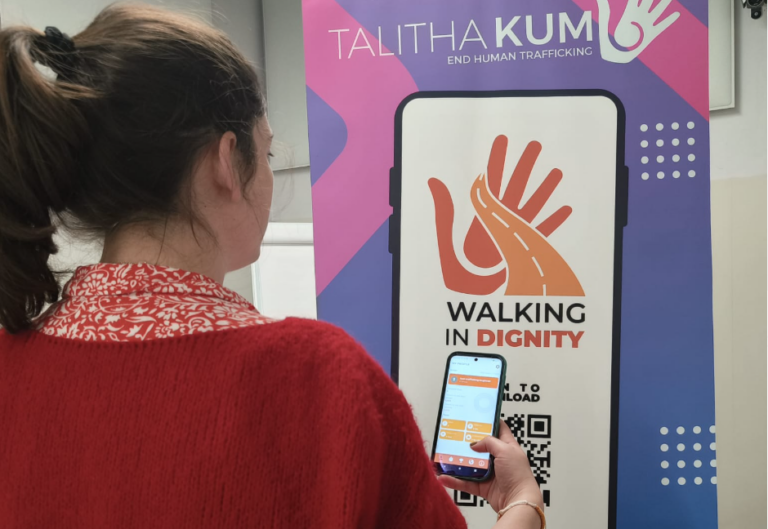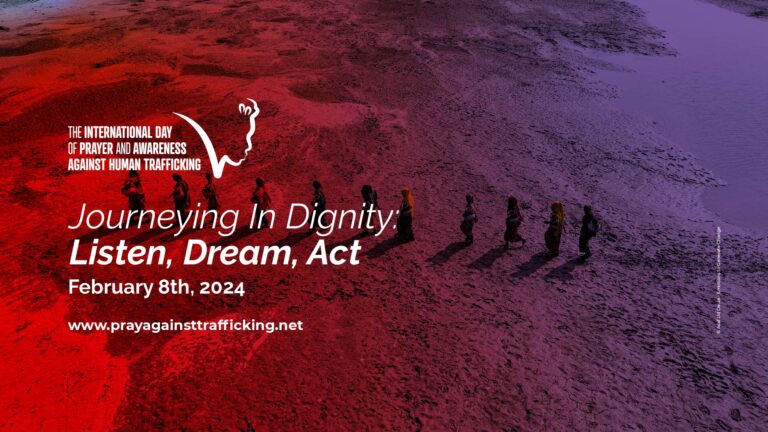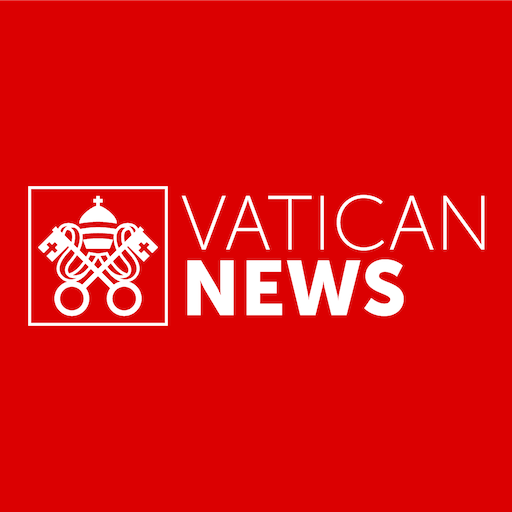By Marta Guglielmetti
Executive Director
Global Solidarity Fund
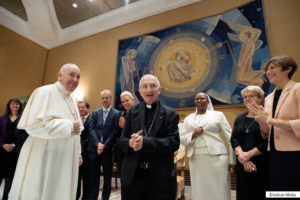
“Closeness, compassion, tenderness.”
This was the charge Pope Francis gave to the Global Solidarity Fund as he met with us, and partners and friends, at the Vatican on October 27, 2021. These are the ways we must embody solidarity with a world in need. With those who are pushed to the edges, we draw close. With those who suffer, we bring compassion. With tenderness, we give ourselves to each other, knowing that solidarity is the only foundation from which we can bring true change.
As Pope Francis received a book presenting the work to which the Global Solidarity Fund has dedicated ourselves – in such areas as job creation for migrants and refugees, care for survivors of human trafficking, equitable vaccine distribution, and protecting the earth in the face of climate change, he made his commission absolutely clear – “Go do it.”
Within hours of receiving these words, GSF was indeed moving forward in the work we were established to do. We hosted a high-level roundtable on the Innovation Lab on Job Creation for Migrants and Refugees, in partnership with Tent Partnership for Refugees and Goal 17 Partners. Building on the launch of the Lab in July, this roundtable was the next step in developing new solutions to the critical need for employment pathways and dignified jobs for millions who are “on the move.”
Executives from DHL, the EAT Forum, ENI, and CleanChoice Energy, representatives of the Jesuit Refugee Service, Salesian Sisters and the Catholic Diocese of Addis Ababa, leaders of global non-profits, and experts from UNHCR and USAID convened alongside members of GSF’s leadership. Through robust and candid dialogue, we outlined concrete commitments to further the mission of job creation over the year to come.
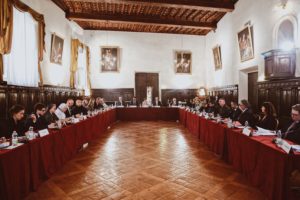
The Innovation Lab is, at its core, a vehicle for companies to bring business solutions forward in response to unique insights and access provided by on-the-ground, faith-based service providers working closely with millions of migrants, refugees and internally displaced people (IDPs). In a global moment defined by labor shortages and increasing vulnerability for those who are being forced from their homes and livelihoods, the aim of the Lab is to bring new solutions to both job creation and job connection – benefiting migrants and companies alike.
Connecting refugees and migrants with dignified jobs is both an urgent need and a massive opportunity. As our colleagues from the UN and governmental sector highlighted, climate disasters, violent conflict, and economic turmoil have driven hundreds of millions of people worldwide from their homes and livelihoods. This forced displacement is becoming the new reality for an increasing number of vulnerable people every year.
Regardless of what level of education and job skills any individual might have, the act of being forced to leave home creates tremendous obstacles to finding reliable work and decent wages. The Catholic service providers outlined barriers experienced by the migrants they work with, including internet and technology access, bureaucratic challenges to acquiring legal working status and new certifications, and training and skill development that is often quite different from one’s expertise at home.
On the flip side of the problem is tremendous opportunity. As many Lab contributors from the private sector emphasized, a shift in mindset toward migrants and refugees is critical, as they themselves are not the “problem” to be solved, but rather a significant part of the solution to a more equitable global economy. Further, faith-based service providers working with migrants and refugees will benefit tremendously from more systematic engagement with the private sector to bring their work to scale and improve their business practices.
In my remarks at the Lab following the meeting with Pope Francis, I cast this vision for the future significance of this ground-breaking day:
“As we find implementable solutions to this critical issue of job creation, the global reach of the Catholic Church will help us scale immediately. Every solution we find can be implemented widely. This is truly unique.”
As the Innovation Lab moves into an accelerated phase of action, let me say to leaders of companies interested in increasing your social impact at scale: reach out to us and let’s explore what we can do together!


